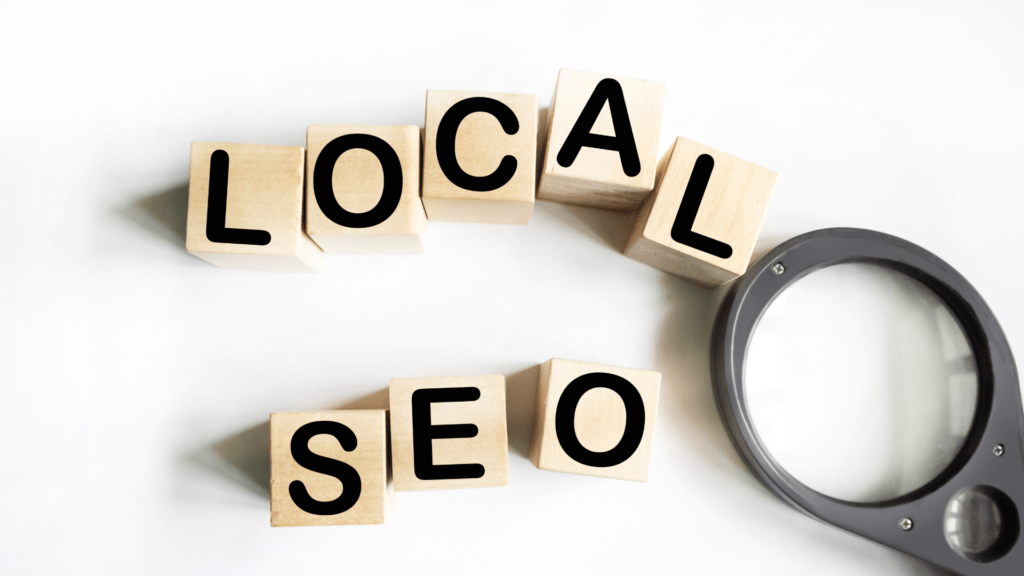Local SEO Strategies: Winning the Online Visibility Game for Brick-and-Mortar Businesses
How can brick-and-mortar businesses compete in an increasingly digital marketplace? The answer lies in mastering Local SEO strategies. By optimizing for local search, businesses can enhance their online visibility, attract more foot traffic, and ultimately drive sales.
The Importance of Local SEO
Local SEO (Search Engine Optimization) focuses on optimizing a business’s online presence to attract more customers from relevant local searches. These searches take place on search engines like Google and other online directories. According to Google, “46% of all searches have a local intent,” underscoring the importance for businesses to be visible in local search results.
Understanding Local SEO
Local SEO is about making your business visible for geographically-related searches, specifically within Google’s Local Pack (or map listings). These are the top results Google shows for local queries, typically including the business name, address, phone number (NAP), reviews, and a map pinpointing the location. This is crucial for brick-and-mortar businesses as it drives local traffic and boosts in-store visits.

Key Components of Local SEO
1.Google My Business (GMB)
The foundation of any local SEO strategy is a well-optimized Google My Business listing. Creating and verifying a GMB account allows your business to appear in local search results and Google Maps. Keep your information accurate and up-to-date, including business name, address, phone number, website, and hours of operation.
2. Local Keywords
Incorporate local keywords into your website content, meta descriptions, and titles. These keywords should reflect how locals search for your products or services. Tools like Google’s Keyword Planner can help identify relevant local search terms. For instance, instead of targeting “coffee shop,” use “coffee shop in downtown Austin.”
3. Online Reviews
Online reviews significantly impact local SEO rankings. Encourage satisfied customers to leave positive reviews on platforms like Google, Yelp, and TripAdvisor. Respond to reviews—both positive and negative—to show that you value customer feedback. According to Moz, “Review signals account for 15.44% of local pack ranking factors.”
4. Local Citations
Citations are mentions of your business’s name, address, and phone number on other websites. Ensure consistency across all listings on directories like Yelp, Yellow Pages, and local chamber of commerce sites. Inconsistent NAP information can confuse search engines and negatively impact your local search rankings.
5. Mobile Optimization
A significant amount of local searches are conducted on mobile devices. Ensure your website is mobile-friendly, with a responsive design that provides a seamless user experience across all devices. Fast loading times and easy navigation are critical components of mobile optimization.
6. Local Content
Create content that is relevant to your local audience. This could include blog posts about local events, news, or stories that resonate with the community. Highlighting local partnerships and sponsorships can also boost local relevance and engagement.

Implementing Local SEO Strategies
Optimize Your Google My Business Profile
Start by claiming and verifying your Google My Business profile. Fill out all the information fields, choose the right categories, and add high-quality images of your business. Regularly update your profile with new photos, posts about offers, and any changes in business hours.
Build Local Backlinks
Backlinks from local websites can significantly boost your local SEO. Reach out to local bloggers, news sites, and business directories to earn backlinks. Participate in local events and sponsor community activities to get featured on local websites.
Engage with the Community on Social Media
Active engagement on social media can enhance your local SEO efforts. Share updates, promotions, and local news on your social media channels. Use local hashtags and geotags to increase visibility among the local audience.
Monitor and Analyze Your Performance
Use tools like Google Analytics and Google Search Console to monitor your local SEO performance. Track metrics such as local search rankings, website traffic, and customer engagement. Use these insights to refine your strategies and improve your local search visibility.
Conclusion: Dominating Local Search for Brick-and-Mortar Success
In conclusion, effective local SEO strategies are essential for brick-and-mortar businesses looking to enhance their online visibility and attract more customers. By optimizing your Google My Business profile, targeting local keywords, managing online reviews, ensuring citation consistency, and creating locally relevant content, you can dominate the local search landscape. As digital marketing expert Neil Patel says, “SEO is not about gaming the system anymore; it’s about learning how to play by the rules.” By adhering to best practices in local SEO, brick-and-mortar businesses can thrive in the competitive online arena.





